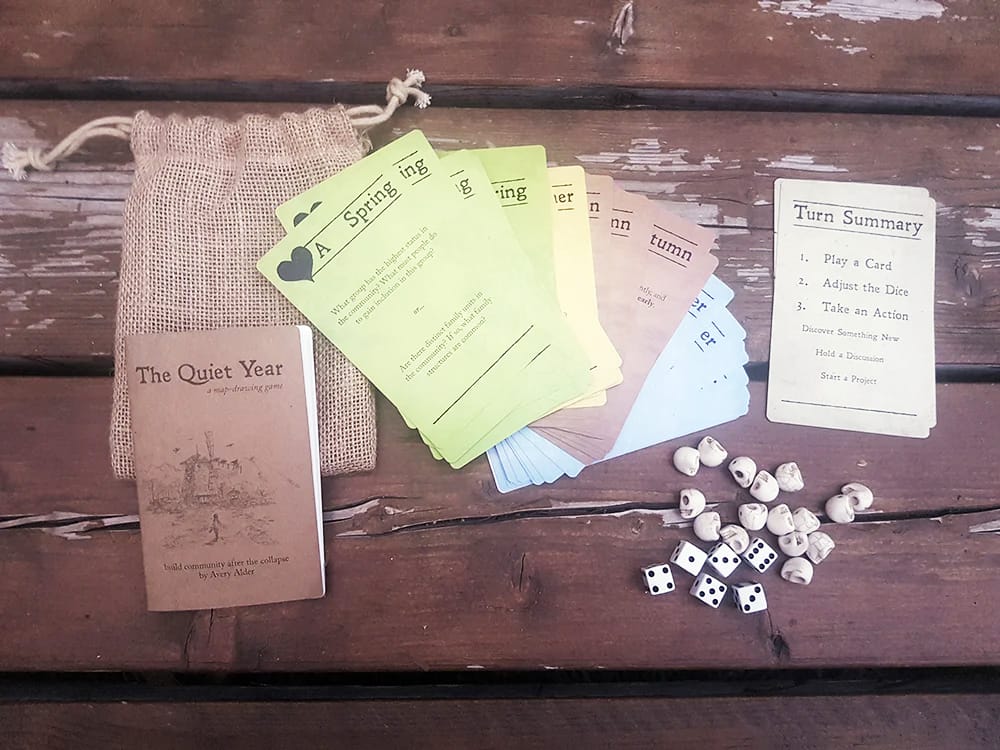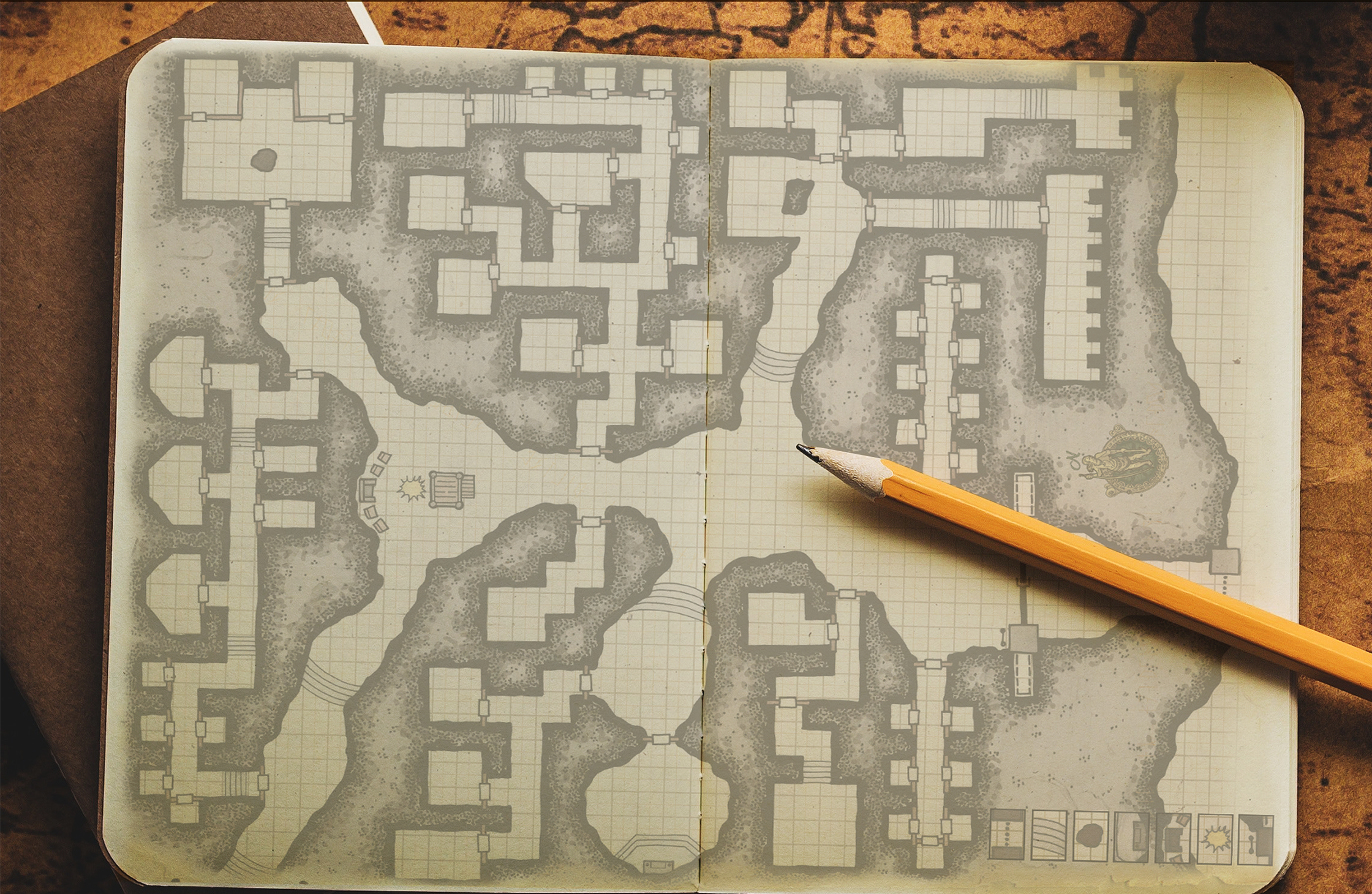This is the first in a multi-part series about running Role Playing Games.
Summer is here, and there really isn’t a better time to learn how to become a Game Master (GM): someone who runs Role Playing Games (RPGs). If you’ve ever been curious about how to get started, here’s some advice I’ve cultivated over the past 30 years of running games (and the past 10 years of running the GM Workshop). This will be the first part in a series, and while I intend for future essays to drill down into specific topics, this one will be a quick-start of sorts — a handful of small bits of advice to set you off on the right path. A lot of this stuff should be handled during a Session Zero (you’ll learn more about Session Zeros in a future article; you can also read what I’ve previously written on the topic here: tumbleweird.org/session-zero-safety-tools), but they’re a good thing to keep in mind regardless of where you’re at in your games.
In no particular order:
It’s everyone’s job to make sure everyone is having a good time.
I see this time and again — a group of folks get together to try out RPGs for the first time, and the GM takes on all of the burden before, during, and after the game to make sure everyone’s needs are met, that everyone is having fun, and that they’re an expert in both a rule system and campaign setting. This is a great way to hit burnout quickly.
Instead, consider that every person at the table is responsible for making sure they’re supporting the enjoyment of everyone. Set the expectation with your players that it’s their responsibility to be engaged with the game, to come prepared, to think of things that they want to accomplish for their own characters, and to work with other players to make sure their in-game needs are met, as well. This also demands the establishment of safety tools, content boundaries, and a conflict resolution plan, but that’s outside of the scope of this essay. We’ll talk about all of it though; I promise.
Don’t start with Dungeons & Dragons
Folks who’ve heard me talk know that I don’t particularly like Dungeons & Dragons (D&D) as a game. I find it extremely middling; and for people just getting started, there’s a lot of kluge to sift through, and very little to actually train folks on how to run and play RPGs.
Instead, I’d seriously consider getting together with your group and playing some GM-less games to get your feet wet. One such game is The Quiet Year — where you collaboratively draw a map and build a small society in a year of peace set within a time of trial and strife. There are also a ton of indie GM-less games at itch.io/physical-games/genre-rpg/tag-gmless.
GM-less games are a fantastic place to start because they are extremely high-value / low-commitment games. They’re inexpensive (or free), require little to no prep, are taught as they’re played, and serve as a fantastic litmus test for new players. They can also help you and your group figure out what kinds of games you want to play.

Not every player is a good fit for every table, and not every table is a good fit for every player
I’m not talking about unkind, inequitable behavior here; I’m talking about situations where everyone is doing their best, but they’re just out of sync. Maybe a player has a difficult time playing games for the amount of time a group’s typical session takes. Maybe one player is looking for roguelike-style dungeon crawling and looting while another player is interested in high-fantasy intrigue.
No one’s wrong here; it’s just not a fit, and trying to make it one is just going to lead to disharmony amongst players. When you all decide together what kind of game your table wants to play, it’s more likely that the players will have a good time. And if someone just isn’t into it after giving it a shot, they would probably be better off finding something else to do (with no hard feelings, if we’re doing it right).
Hybrid games are really difficult without a lot of work
In-person games are great, remote games played through Discord or Roll20 are great, but hybrid games (where some players are in-person, and other players are remote) are really hard to get right. The remote folks will need to have extremely reliable and good-quality tech in order to find some kind of equity at the table. And for the in-person folks, they’ll need to have cameras, speakers, and a good microphone so folks remoting in can get a clear picture of what’s happening. Basically, if your group can’t hold a reliable conversation in hybrid, there’s no way an RPG can be played in that way.
Find a rule system that fits the kind of game you want to play, not the other way around
Not every rules framework will fit into the kind of game you’re looking to run. That has its advantages and disadvantages. Starting with a framework and making it fit your game might grant you access to a broader set of resources for developing the game, but you’ll need to make more compromises in order to work within that system. Because there are so many different systems and rulesets available, it can be hard to determine what system will best fit before making a huge resource commitment to one.
The way I do it generally is, after talking with a new group and figuring out the kind of game folks want to play, if a system doesn’t immediately come to mind, I’ll just hit up Reddit and give the RPG community a synopsis of what I’m looking for and see what they kick back. The real advice here is to run and play a lot of different games to get a feel for them so you can apply a ruleset that works best for the stories your table wants to tell.
The ‘half-only prep’ rule
Honestly, especially when you’re getting started, don’t map out everything. Don’t name every NPC, don’t figure out what’s under every stone your PCs might overturn. You’ll be wasting 99% of your effort on stuff that, at best, you’ll have to change (and at worst, have to just toss aside).
Instead, for each session, I prep for two or three story beats, but I only prepare the half of each that interests me. For example, if I’m anticipating an encounter with a pack of goblins, I’ll prep the goblins, their motivations, and their general purpose with respect to the plot, but I won’t prepare what happens at all once the PCs run into them. Alternatively, I might want a resolution or plot beat to happen in the story, so I’ll plan and prep that, but I won’t plan anything with respect to how the PCs come upon it. That way, when the players do something unexpected and I need to come up with something on the fly (and the fiction dictates an opportunity), I can drop it in organically.
You’re going to be bad at this and mess up, but that’s fine
Running games is challenging. For systems that require a greater adherence to mechanisms (like D&D), you’re going to miss some stuff that’ll impact your game — they require you to do a lot of math and remember a lot of little rules. For games that require a greater amount of improvisation (like Dungeon World), you might paint yourself into a corner or draw a blank when you are trying to come up with something to say.
It’s all fine. Address problems when they come up, rewind/retcon when you need to, and keep moving forward. The most important thing is that the table as a whole has an agreement to support one another when something inevitably goes sideways. That includes supporting the GM!
There’s so much more to say about becoming a GM, but my space is up ;)
If you have questions, comments, or want me to hit on anything specific, shoot me an email at president@tricityareagaming.org, or come out to one of our GM workshops happening twice a month. Until next time!
Join us for Game Master Workshops — for aspiring game masters and experienced ones!
GM Workshop at Caterpillar Cafe every 2nd Tuesday from 5–7pm
GM Workshop at Barnes & Noble every 4th Saturday from 10am–Noon
Brendan Quinn is the President of Tri-City Area Gaming, a 501(c)(3) nonprofit that promotes critical thinking skills with community-building events and supports game-based educational and charitable activities. He is an ASWB certified Therapeutic Game Master with over 20 years of GM experience.
Tri-City Area Gaming uses tabletop gaming as a framework for social interaction, education, and community building. They host nearly 100 events a year in order to bring folks together in a way that’s safe, friendly, and inclusive.
Check out Tri-City Area Gaming’s events and follow them on social media: tcag.carrd.co


